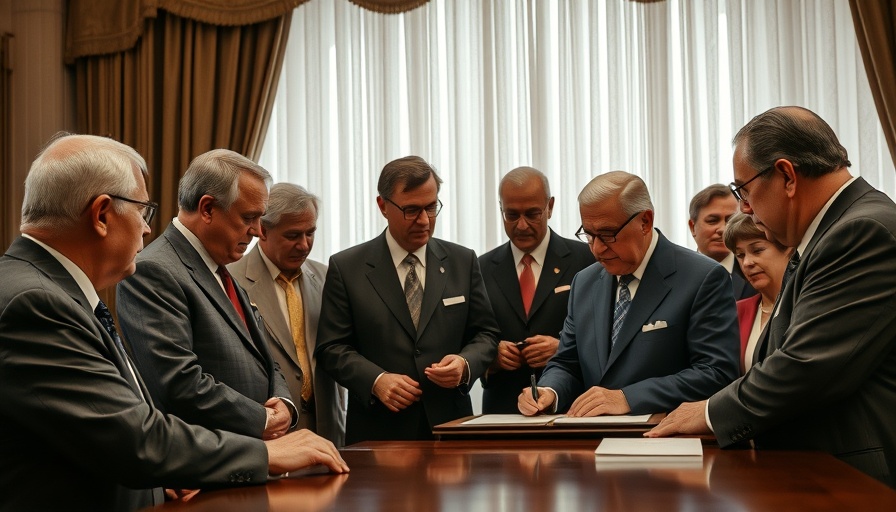
Celebrating 60 Years: A Pillar of Support for Older Americans
In July 2025, we are reminded of a monumental milestone — the 60th anniversary of Medicare, Medicaid, and the Older Americans Act (OAA). Established through the visionary leadership of President Lyndon B. Johnson, these programs serve as the cornerstone for the health and economic stability of older adults across the United States. As we reflect on their contributions, the pressing question looms: will they continue to survive and thrive in the next 60 years?
Understanding the Components: Health and Economic Support
Medicare and Medicaid have transformed the landscape of healthcare for older adults, enabling millions to gain essential access to medical care and necessary community services. Alongside Social Security, these programs provide more than just healthcare; they offer a vital safety net that supports overall well-being. Without them, many older Americans could face increased financial strain, leading to struggles with basic necessities like food and healthcare.
Current Threats: Budget Cuts and Policy Changes
The situation is increasingly precarious as recent Congressional actions threaten to cut funding for these essential programs. Particularly alarming is the GOP’s budget reconciliation bill, which was recently passed with slim margins. AARP has indicated that changes may drive many seniors to forgo necessary medications or premiums, jeopardizing their health and support systems. This undue pressure is compounded by anticipated cuts to the Supplemental Nutrition Assistance Program (SNAP), which could lead to hunger among the elderly, a demographic already marginalized by rising costs and limited resources.
The Older Americans Act: A Beacon of Hope
Despite these challenges, the OAA stands as a beacon of hope, with its reauthorization set for 2025. As Senator Bernie Sanders emphasized, this legislation not only saves lives but also promotes healthier, more dignified living among older adults. It embodies a commitment to investing in the services and resources that can alleviate the pressures on our aging population. This proposal focuses on promoting innovation and flexibility in service delivery, improving access, particularly for vulnerable seniors, while also prioritizing family caregivers.
Future of Senior Services: The Funding Dilemma
While the OAA’s reauthorization provides some optimism, it faces the grim reality of proposed budget reductions threatening many of its ancillary support services. Services essential to the health and well-being of seniors, including home-delivered meals and transportation programs, are at risk of disbandment or severe budget cuts. The slow dismantling of the Administration for Community Living heightens these concerns, causing uncertainty about where critical programs will be housed and who will deliver these vital services in future.
The Bigger Picture: Community Resilience and Responses
In times of adversity, the human spirit often shines brightest. Community organizations, grassroots initiatives, and local volunteers play a crucial role in ensuring that older adults receive the support they need. Initiatives that prioritize healthy eating, fitness, and wellness are more important than ever. By fostering a community-centric approach to wellness—through nutrition education, collective exercise programs, and mental health support—local residents can mitigate some effects of potential service reductions while promoting healthier lifestyles.
Conclusion: A Call to Action for Future Generations
As we commemorate the milestone achievements of Medicare, Medicaid, and the Older Americans Act, we must remain vigilant. The challenges facing these programs are systemic and point to a larger societal issue concerning how we care for our aging population. Advocating for sustained funding and innovations in elder care services is not just a need for today, but a crucial investment in the future of our society. It’s our collective responsibility to ensure that every older American can benefit from the care and support they deserve.
Now more than ever, it is vital to engage with local initiatives and advocate for policies that protect and expand these essential services. Join community discussions, participate in health and wellness events, and lend your voice to those who cannot speak for themselves. Together, we can ensure that Medicare, Medicaid, and the Older Americans Act continue to thrive for the next generation.
 Add Row
Add Row  Add
Add 




Write A Comment